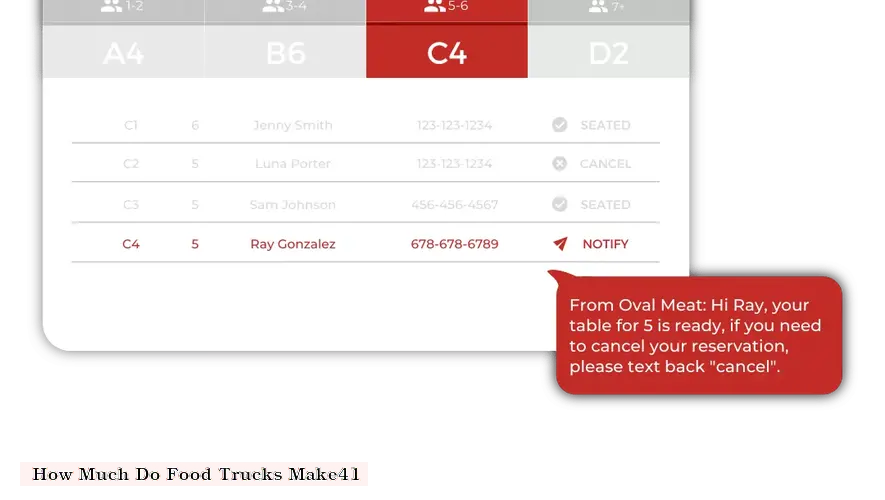

Food trucks have gained popularity in recent years as a more affordable and flexible alternative to traditional brick-and-mortar restaurants. Many entrepreneurs are drawn to the food truck industry because of the lower startup costs and the ability to easily change locations to chase demand. But have you ever wondered just how profitable food trucks can be?
While the exact amount that a food truck can make can vary widely depending on a number of factors, such as location, target market, and type of cuisine, there are some general trends and considerations to keep in mind.
One of the biggest advantages of food trucks is their lower overhead costs compared to traditional restaurants. Food trucks typically have lower rent, utilities, and labor costs, which can translate to higher profit margins. However, it's important to note that food trucks still have operating costs, such as fuel, food and ingredient costs, and maintenance and repairs.
According to data from various sources, including industry reports and financial analyses, food trucks can generate annual revenue ranging from $50,000 to $300,000 or more. However, it's important to keep in mind that these figures encompass a wide range of businesses and individual circumstances. Some food trucks may struggle to break even, while others may be highly profitable.
To maximize profitability, food truck owners can take a number of steps, such as developing a strong brand and marketing strategy, offering unique and high-quality menu items, and carefully managing inventory and costs. It's also important to choose a profitable and high-demand location, such as a busy downtown area or special event.
When comparing food trucks to traditional restaurants, it's important to keep in mind that the two types of businesses have different advantages and disadvantages. While food trucks may have lower overhead costs and greater flexibility, restaurants typically have more seating capacity and the ability to serve alcohol, which can drive up profits. However, restaurants also have higher overhead costs and may be subject to more regulations and permitting requirements.
In conclusion, the profitability of food trucks can vary widely depending on a number of factors. While food trucks may have lower overhead costs and the ability to chase demand, they still have operating costs and may face challenges in terms of location and competition. By carefully managing costs, developing a strong brand and menu, and choosing a profitable location, food truck owners can maximize their chances of success and profitability.
DISCLAIMER: This information is provided for general informational purposes only, and publication does not constitute an endorsement. Kwick365 does not warrant the accuracy or completeness of any information, text, graphics, links, or other items contained within this content. Kwick365 does not guarantee you will achieve any specific results if you follow any advice herein. It may be advisable for you to consult with a professional such as a lawyer, accountant, or business advisor for advice specific to your situation.
today
Copyright © 2025 Kwick365.com
Designed by KwickPOS is the best restaurant POS